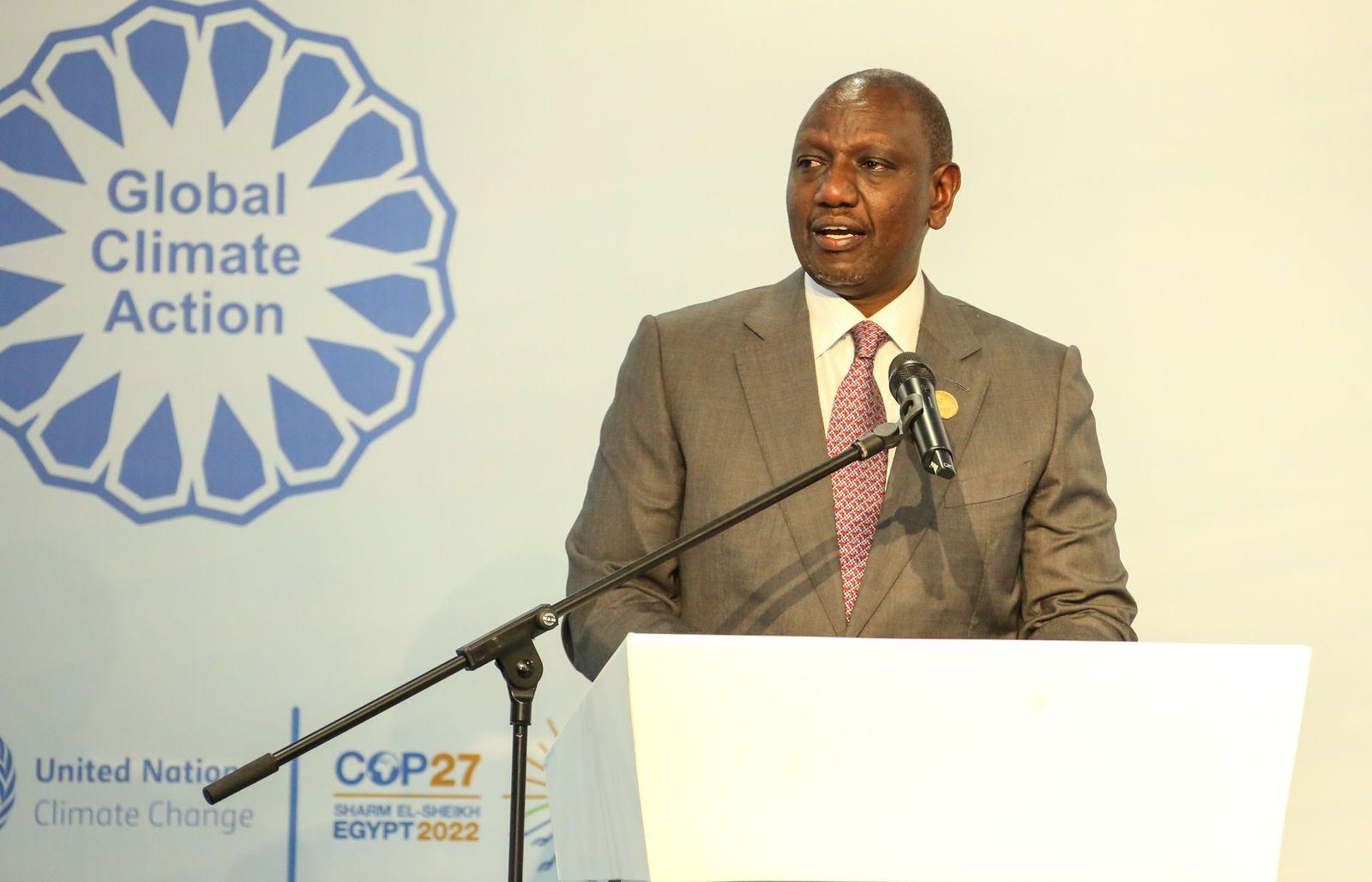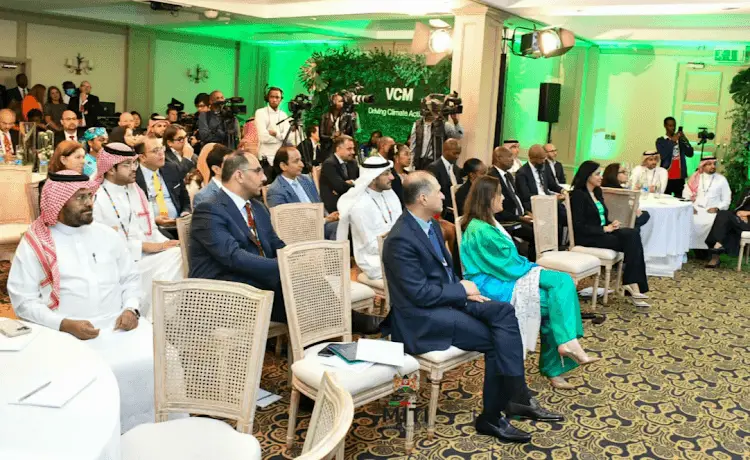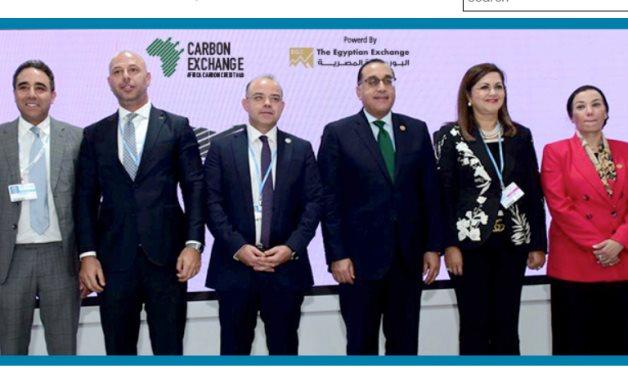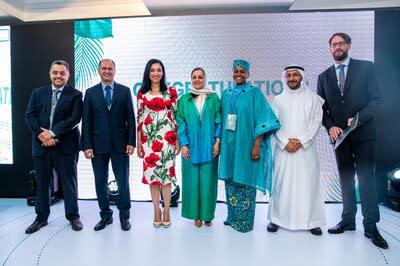- The demand for carbon offsets is rapidly growing in Africa, unlocking billions for the climate finance needs of economies.
- As companies race to meet net-zero emission goals by 2050, demand for carbon offsets will grow exponentially through projects including cleaner cooking fuel and afforestation.
- ACMI aims to grow African voluntary carbon markets to unlock $6bn in revenue by 2030 and over $120bn by 2050.
Africa’s demand for carbon offsets
The demand for carbon offsets is rapidly growing in Africa, unlocking billions for the climate finance needs of economies. Kenya recently hosted a carbon credits auction. The auction is the world’s largest sale, where firms from Saudi Arabia bought more than 2.2 million tonnes of certified carbon credits.
The Regional Voluntary Carbon Market Company (RVCMC), founded by the Saudi Tawadul Group and Saudi Public Investment Fund, was the auction organizer. RVCMC will launch a full-time exchange in Riyadh in the first half of 2024. The Saudi Electricity Company, Aramco, Saudi Airlines and 13 other firms paid $6.27 per metric tonne of certified carbon credits generated from projects. The projects deploy sustainable technologies to mitigate emissions or remove carbon from the atmosphere altogether.
RVCMC highlighted Kenya as a great choice to underscore the need for investments in climate initiatives. RVCMC launched its inaugural auction of 1.4 million in the last quarter of 2022 in Riyadh. Moreover, the company picked Kenya as the East African nation that has borne the brunt of the disastrous effects of the climate change crisis, despite contributing less than 1 per cent of annual emissions. The effects include drought and famine, climate-induced locust invasion and floods.
Voluntary carbon market
As companies race to meet net-zero emission goals by 2050, demand for carbon offsets will grow exponentially through projects including cleaner cooking fuel and afforestation. The voluntary carbon market is viewed as instrumental by companies. It enables them to offset greenhouse gas emissions from their operations by creating investment opportunities in projects that can thwart emissions. According to McKinsey, the annual global market for voluntary carbon credits could hit $50B by 2030. In 2021, the Ecosystem Marketplace valued the global market at $2B.
Next Read: Is Gabon’s carbon credit sale a silver bullet for economic revival?
However, concerns have surfaced regarding the quality of some projects, deterring some buyers. This has necessitated the implementation of tougher market regulations. Furthermore, critics have raised issues of lack of transparency, limited credits supply and project standards. RVCMC CEO Riham ElGizy in a statement, underlined that the company carefully vets projects that contribute credits for sale by partnering with two independent teams of experts.
The move aligns with the remarks made by Kenya’s President William Ruto in 2022 at COP 27 in Egypt. President Ruto referred to Kenya’s carbon credits as the ‘next significant export.’ He underscored carbon credits as instrumental in yielding income and development opportunities, pertinently for communities in areas that have experienced the adverse effects of the climate crisis. Kenya needs $64bn to implement its climate actions by 2030. These actions include tapping into carbon markets as part of the wider climate finance strategy.

Photo/Kenya
Also Read: Africa’s Carbon Credits Market poised to Drive Economic Growth in 2023
ACMI shaping Africa’s carbon credits market
COP 27 also saw the launch of the new Africa Carbon Markets Initiative (ACMI). ACMI’S main objective is to support the growth of carbon credit production and create jobs in Africa. ACMI aims to grow African voluntary carbon markets to unlock $6bn in revenue by 2030 and over $120bn by 2050. Moreover, the initiative aims to produce 300 million carbon credits annually by 2030, simultaneously supporting 30 million jobs and 1.5 billion credits annually by 2050 whilst supporting 110 million jobs. Revenues derived from the sale of credits must then be equitably and transparently distributed among local communities. Many African nations have pledged to the initiative, including Nigeria, Togo, Malawi and Gabon. The ACMI’s roadmap report ‘Harnessing carbon markets for Africa’ outlines 13 proposed action programmes that seek to unlock potential across the VCM value chain in the continent.
Exploring Africa’s carbon credit market
The African Development Bank (AfDB), via its African Carbon Support Programme, has identified and funded viable projects in partnership with the World Bank and other international bodies.
Zimbabwe
In Southern Africa, Zimbabwe is emerging as a carbon credit trading hub, given the recent launch of the Victoria Falls Stock Exchange and the pan-African carbon credit register. Zimbabwe is the 12th largest producer of offsets globally. With 4.2 million credits generated from 30 registered projects in 2022, the Southern African country intends to leverage this position to trade carbon credits on the newly established exchange. Zimbabwe’s largest project encompasses a 1.94 million-acre stretch of forest in northern Kariba. It is run in part by the South Pole, hailed as the world’s premier seller of offsets.
Next Read: Africa’s First Spaceport Set to Position the Continent in the Global Space Race
Zimbabwe’s government portends to allocate some carbon-credit program funds to the government and local investors. This helps to regulate trade, retain revenues within the country and enhance transparency. The Victoria Falls Stock Exchange plans to begin trading carbon credits by September. The trading will maximise changes in the production of securities in the country. At the forthcoming state-backed conference, the AVCM Forum, from July 3 to 9 in a Victoria Falls resort, the country intends to snap up projects generating the offsets on a carbon registry at its dollar-denominated Victoria Falls Stock Exchange.
Nigeria partners with an oil trading giant
In West Africa, Nigeria Sovereign Investment Authority (NSIA) and Vitol, an oil refining and trading group, recently completed a $50 million joint venture to invest in carbon sequestration projects. The joint venture is the first under ACMI, creating a voluntary carbon market for Nigeria. The first investment will be an energy efficiency programme to supply Nigerian households with 400,000 clean cooking and water filtration devices. A new fund, dubbed the ‘Carbon Vista Fund,’ will manage the joint venture to deliver high-quality projects. The fund will partner with local firms combining carbon offsetting and social outcomes to realise the UN SDGs.

[Photo/Twitter]
Congo Basin nations’ pursuit of easier sovereign carbon credit
Central Africa is home to the rainforest and peatlands critical in mitigating the global climate change crisis. Countries in this region advocate for easier access to a sovereign carbon credit market, a financial scheme to compensate for preserving their ecosystems.
Africa is home to the world’s second-largest tropical rainforest after the Amazon. Located in the Congo Basin and renowned as the ‘lungs of Africa’, it covers 268 million hectares in Central Africa. The Congo Basin spans six countries. These are the Central African Republic, Cameroon, Gabon, Equatorial Guinea, Republic of Congo. The Congo Basin wields carbon-rich ecosystems. This makes it essential for the planet and all humanity. The ecosystem is critical in climate mitigation by absorbing greenhouse gases and carbon storage in the soil and trees.
Congo Basin’s resilient
Moreover, the Congo Basin is more resilient to climate change than the Amazon rainforest. The tall trees in the Congo Basin soak up some 1.2 billion tons of carbon dioxide yearly. DRC and Congo are ranked among the world’s largest tropical peatlands. The two are believed to hold up to three years’ worth of global emissions. The peatlands are especially integral in biodiversity conservation and carbon sequestration.
The UN climate agreements established sovereign carbon credit markets. They are designed to allow such countries to seek financial rewards for protecting ecosystems, including forests and peatlands. Developed countries are the source of the highest levels of greenhouse gas emissions. This leaves developing countries suffering the deleterious effects of the climate change crisis. The sovereign carbon credit market could help to grow Congo’s GDP by up to 40 per cent. This can fund the energy transition and create sustainable employment.
In an interview with Reuters, Arlette Soudan-Nonault, Congo Republic’s minister, noted that multilateral financial institutions such as the World Bank need to simplify credit issuing procedures. As opposed to the common voluntary credits traded by private companies, sovereign carbon credit markets, on the other hand, require exclusive scrutiny and oversight.
Also Read: Climate financing: Africa’s green bonds uptake on a roll
“Currently, countries are pushed into using the voluntary carbon credits market, an “unregulated Wild West. The rich world breathes through the green lungs of countries of the global south,” she noted whilst in Morocco garnering support for the UN Summit scheduled to take place in Brazzaville, Congo Republic’s capital, later in June. The Summit will convene countries of the world’s largest rainforest regions, such as the Amazon, Borneo-Mekong and Congo Basin countries.
Gabon’s carbon credit market
Furthermore, Gabon became the first country to make carbon credits available under a system set up by the United Nations Framework Convention on Climate Change (UNFCCC) to count ‘emissions reductions’ by preventing deforestation or planting and growing more trees in December 2022. Earlier in mid-2022, the Gabonese Strategic Investment Fund (FGIS) joined the Net-Zero Asset Owner alliance, an UN-launched initiative that commits to transitioning several investment portfolios to carbon neutrality. Hailed as the first African sovereign wealth fund, the FGIS has committed to financing zero-emission activities by 2050. Its mandate is to set new targets every five years and report on its progress annually.
In addition, in the last quarter of 2022, Amazon’s CEO Jeff Bezos took a trip to the country, lured by the potential of Gabon’s carbon credits market. The billionaire pledged $35 million to the francophone country as part of the ‘Bezos Earth Fund’s’ $110 million donation to the region to support conservation efforts. The Fund is committed to disbursing grants worth $10B between 2020 and 2030 towards nature protection and combating climate change. Gabon held the biggest carbon credits sale, potentially raising over $2 billion. Revenues from sovereign carbon credit sales will go to forest conservation, alleviating sovereign debt and supporting its transition to a sustainable economy.
Also Read: Ocean conservation can revamp Africa’s blue economy
Egypt Plans to boost carbon credit market

Photo/EgyptToday
In North Africa, the Egyptian Exchange (EGX) and Qatar’s Global Carbon Council (GCC), an internationally recognized provider of high-integrity carbon credits, recently announced the launching of Africa’s first regulated voluntary carbon market. The two signed a Memorandum of Understanding (MoU) to promote regional climate actions and strengthen carbon markets regionally and globally. EgyCOP launched within the activities of the COP27, is the country’s first carbon credit company. The launch paves the way for a nationwide carbon credit market to reduce CO2 emissions. It is the first direct investment company operating in voluntary carbon markets.











